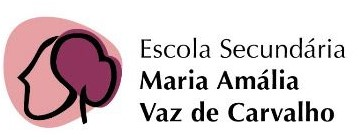

Sample text. Click to select the text box. Click again or double click to start editing the text.
Partially, yes.
You will have Portuguese language lessons and some other subjects taught in Portuguese. Portuguese Language knowledge is not thought to be essential for some subjects (for instance, Sports or Maths). You may use the Internet and automatic translation tools to help you follow the syllabus.
Yes.
The school has a range of sporting activities — check with your Physical Education (P.E.) teacher.
In addition, the school has a Cinema Club, a Theatre Club, and an Associação de Estudantes (Students’ Club). Join a club and meet new students.
Note: every year new clubs may appear. Keep your eyes peeled and check for posters around the school that advertise events and/or student clubs.
No. But if you are under 19 years old and you live in Lisbon, you are entitled to free transport. You need to get a card called Cartão Navegante Escola.
If you do not live in Lisbon, you can still get a discount on a monthly transport pass.
These conditions also apply to a student who is over the age of 19 and is attending school at a Secondary Level.
To get your free transport pass/card, you need:
- a passport photo (you can usually take this type of photo in photograph boots at a main metro station — for instance, metro stations Marquês de Pombal or Jardim Zoológico)
- proof that you are enrolled in the school (this proof is called prova de matrícula and you can get it from the school’s admin office/Secretaria)
You can request your card online (https://apps.cm-lisboa.pt/pacne/) or at Marquês de Pombal or Jardim Zoológico metro stations.
Note: the card Navegante Escola gives you free entrance to some museums and monuments as well.
You may find official information in English about this topic on the Portuguese Government’s E-Portal (Eportugal.gov.pt):
https://eportugal.gov.pt/en-GB/migrantes-viver-e-trabalhar-em-portugal/migrantes-ensino-em-portugal-para-criancas-jovens-e-adultos
Sample text. Click to select the text box. Click again or double click to start editing the text.
“Falta” is an absence from a lesson or otherwise mandatory activity. This includes lack of equipment an d lack of punctuality.
a. Each one refers to a different kind of absence.
b. FI – Falta Injustificada. Unjustified Absence. Your child was absent from class and the Head teacher (director de Turma) has not been given an official justification.
c. FJ – Falta Justificada. Justified absence. Your child was absent from class but an acceptable reason was provided by the guardian to excuse it (e.g. – Doctor’s appointment).
d. FM – Falta de Material. Absence of Equipment. Your child did not bring the necessary material or equipment to a lesson. This can include textbooks, notebooks, sports-wear for physical education and other necessary materials.
e. FD – Falta Disciplinar. Disciplinary Measure. Your child incurred in disruptive behaviour and was asked to leave the classroom.
f. FP – Falta de Pontualidade. Lateness. Your child arrived late to class.
Absences are calculated at 45min blocks. Being absent from a 90min lesson is equivalent to 2 faltas.
After the first ten minutes of the first lesson of the day, tardiness becomes a Falta de Pontualidade.
After the third time a student is unaccompanied by necessary equipment and gained a Falta de Material, any subsequent absences of equipment are counted as Falta Injustificada and may not be excused by the guardian.
Alternatively, your child may have been asked to leave the lesson due to misbehavior.
If neither is the case, please contact the diretor de turma to ensure they were applied by mistake. If so, they are removed by the director de turma.
Yes, any absence due to school-organized field trips will be excused. Additionally, if a field trip happens during the student’s schedule, it is mandatory and not participating will be considered a Falta Injustificada.
Any absences should be justified by the child’s guardian, in writing, stating the day, hour or activity that the student was not present for. The justification should be accompanied with an official document. (e.g. presence certificate from a doctor’s appointment)
If you can expect the absence (e.g. doctor’s appointment) then it should be done before it happens. Otherwise, you have three business days to do so.
If the absence is justified, the student will have another opportunity to do an equivalent assessment. If there is no justification for the absence, the student will be mark ed with 0 in that assessment element.
The legal limit of absences is twice the weekly hours of the specific discipline. For example, if English has two 90 minute lessons per week – which is four lesson times – then the student is allowed to be absent up to 8 times in a ye ar.
They will have to complete a MRI – Medida de Recuperação e Integração. (Integration and recovery measure).
This MRI consists in activities, tasks, exercises or other actions designed to compensate the learning lost due to absences. They will be determined by the teacher of the discipline in question as well as the director de turma.
Failure to complete a MRI means the student will automatically fail the academic year they are attending. Additionally, Child protective services will be notified.
Same as the question before
This site was created with the Nicepage